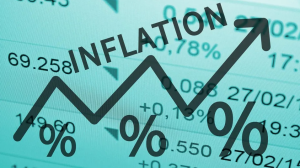
The goods and services tax is an unavoidable fact of life in New Zealand. Read on to find out everything you need to know about GST submission dates for businesses, including answers to FAQs. This article will also outline other important business tax compliance dates.
GST submission dates — when are the payment due dates?
GST returns are due to Inland Revenue by the 28th of the month after your taxable period ends. Your GST payment is also due on the same day. Your taxable period may be monthly, two-monthly or six-monthly, depending on the option you chose when you initially registered your business for GST. However, there are two exceptions to the ’28th of the month following the end of your taxable period’ rule:
- the due date for the taxable period ending 31 March is 28 June.
- The due date for the taxable period ending 30 November is 15 January.
GST FAQs
Who needs to register for GST?
You must register for GST if your entity meets either of the following:
- Your turnover from taxable activity was at least $60,000 in the last 12 months, or you expect it to be at least $60,000 in the next 12 months.
- You add GST to the price of the goods or services you sell through your business.
Do you have to file GST returns?
If you are registered for GST, you need to file a GST return, even if your GST payable is nil. If your business has paid out more GST than it has collected, you will get a refund.
Can you get an extension on the submission dates?
No, you can’t, and if you submit your GST return or payment late, you may be charged late fees.
Can you use accounting software to submit your GST return?
Yes, and software that is New Zealand GST-compliant will pre-populate your return with your financial figures. However, you can submit a paper return if you prefer.
What is the GST rate?
15% on the sale of most goods and services. You can offset any GST you pay on business goods and services against the GST you collect.
Are any goods and services exempt from GST?
Yes. You can find an up-to-date list here.
Do all businesses in New Zealand need to be registered for GST?
No. However, it is compulsory if:
- your business will have an annual New Zealand turnover of more than $60,000, and/or
- you will add GST to the price of goods and services you sell.
Other important business tax compliance dates
Companies must submit a tax return once a year for the financial year ending 31 March, unless a different end-of-year balance date is pre-arranged with Inland Revenue. Some specific industries have different end-of-year balance dates.
If your business has a standard balance date (31 March), then the due date for submitting your company tax return is 7 July, unless you are going through a registered tax agent. If you use a registered tax agent, you can submit a company tax return up to 31 March of the following financial year.
Businesses that have a partnership structure split their income among the partners, and each partner must lodge their individual income tax returns by 7 July each year, unless they (or their tax agent) apply for an extension and it’s approved. Sole traders have the same options.
Some partners and sole traders may be required to pay provisional tax if the amount of tax at the end of the previous financial year was more than $5,000. Provisional tax payment dates are available to break down your future tax bill into smaller estimated instalments. Check out the provisional tax payment dates.
Calculating GST without a GST calculator
You don’t need a fancy GST calculator to figure out how much to charge. The rate of GST is 15% so you simply add 15% of the sales price to arrive at the GST inclusive price.
For example, a sale of $1,000 has a GST amount of $150 (15%). Add the two together and you get a GST-inclusive price of $1,150. A simple calculation to plug into your calculator is the sales price multiplied by 1.15.
How to calculate GST from the total (GST-inclusive) price
When faced with the gross amount, it’s simple to work out the GST component and the GST-exclusive price.
To get the GST-exclusive price, simply divide the total figure by 1.15. For example, $1,150 divided by 1.15 gives a result of $1,000. From there, you can take the GST-exclusive price away from the gross amount ($1,150-$1,000), which leaves you with the GST amount.
Another way to find the GST component is to multiply the total amount by 3 and then divide by 23. The answer is your GST amount. ($1,150 x 3 = $3,450. $3,450 / 23 = $150).
The formula is (Sales price x3/23)
If you’re due to pay GST and are having some cash flow concerns, we have a range of business finance options that may be able to help you keep up with your tax obligations.






